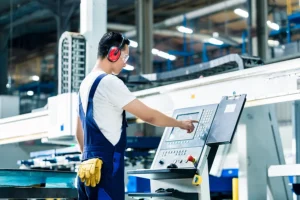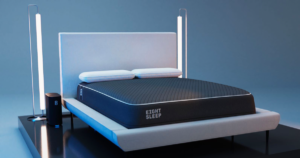How CNC Machine Are Revolutionizing Precision Engineering and Metal Work
In today’s fast-paced world of manufacturing, CNC (Computer Numerical Control) machines are leading a quiet revolution that’s changing the way industries approach engineering and metalwork. From the automotive sector to aerospace, CNC machine are redefining precision, speed, and efficiency. Once considered a luxury or a high-end addition to workshops, CNC technology is now a standard necessity in modern engineering and fabrication.
Precision Like Never Before
At the heart of the CNC machine’s impact is its ability to perform highly precise cuts and engravings, often within tolerances as small as a few microns. Unlike manual machining, which depends heavily on the operator’s skill and consistency, CNC machine operate based on pre-programmed software. This eliminates human error and ensures that each piece, no matter how complex, is produced with exact specifications every time.
Whether it’s cutting aluminum sheets, milling complex engine components, or engraving intricate designs on metal plates, CNC machines can do it all—flawlessly. The result is reduced waste, minimized production errors, and consistently high-quality output.
Enhanced Efficiency and Automation
One of the most attractive benefits of CNC machine is their capability for 24/7 operation. Once set up, they can continue working around the clock with minimal supervision. This level of automation allows companies to meet high production demands while keeping labor costs in check.
Moreover, CNC machines can handle repetitive tasks at a speed no human could match, freeing up skilled workers for more strategic roles. The efficiency gained from automated machining is pushing companies to reimagine their workflows and explore new possibilities in large-scale and customized production.
Flexibility Across Industries
Another reason CNC machines are revolutionizing metal work is their versatility. A single machine can be programmed to perform different tasks, from drilling and cutting to turning and milling. This flexibility enables manufacturers to adapt to new project requirements quickly without investing in multiple machines.
In industries such as aerospace, where parts must meet strict standards. CNC machining ensures components are not only precise but also repeatable. The same is true in the medical field, where surgical tools and implants require micrometer-level accuracy. CNC machines empower engineers to design and produce parts that would be nearly impossible using traditional methods.
Smarter Manufacturing with Digital Integration
The integration of CNC machines with CAD (Computer-Aided Design) and CAM (Computer-Aided Manufacturing) software has further elevated their capabilities. Engineers can now design complex components digitally and send them directly to the machine for fabrication. This streamlined process shortens production times and enhances innovation by allowing faster prototyping and adjustments.
Additionally, newer CNC machines are being equip with IoT (Internet of Things) features that allow real-time monitoring, predictive maintenance, and performance analytics. This smart integration is shaping the future of “Industry 4.0” and intelligent manufacturing systems.
Conclusion
The rise of CNC machines marks a transformative moment in precision engineering and metal work. Their ability to deliver unmatched accuracy, efficiency, and versatility has made them indispensable in both small workshops and large industrial facilities. As technology continues to evolve, CNC machines will undoubtedly remain at the forefront. Driving innovation and reshaping how we design, build, and create.














Post Comment